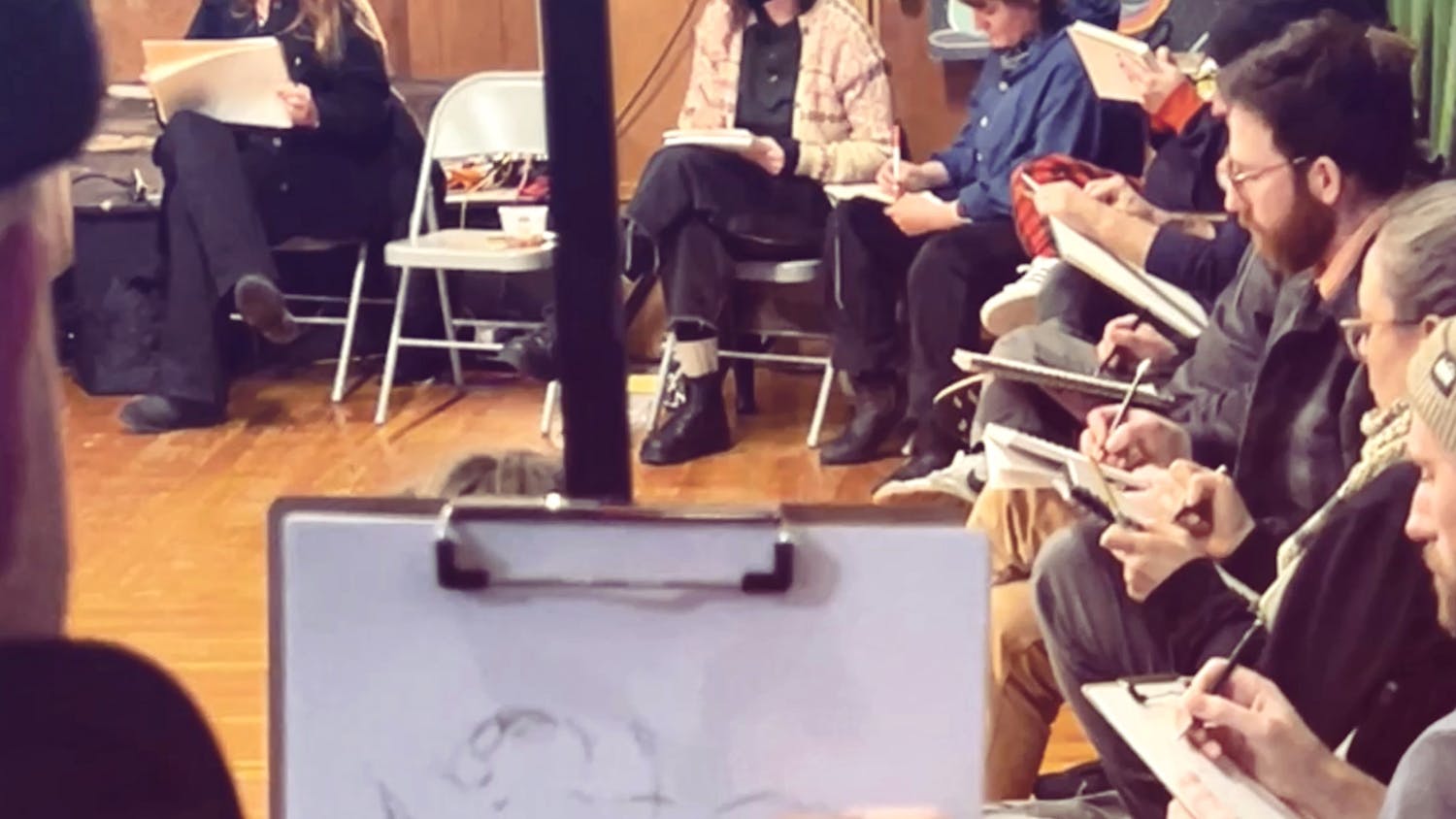The street-view of Third Planet on Tuesday, Dec. 3. // Photo by Claire Ott By MacKenzie Dexter Fashion is a way for people to express themselves creatively, provide jobs and stay warm during the cold months, however, the fashion industry contributes to waste and overproduction in America. According to the Environmental Protection Agency (EPA), clothing contributes to over 9% of municipal waste a year. On average, this means an American throws out about 81 pounds of clothing a year. According to Forbes, the fashion industry contributes 4% of the world’s waste each year, which equals about 92 million tons. There are also ethical issues, such as the 170 million child laborers that support the fashion industry, according to the International Labour Organization. While these facts may be jarring and make it challenging to find companies to shop at, local businesses are a place to start. Bellingham is home to multiple shops that support local artists, use sustainable products and practice ethical production and consumption. “Cheap clothes are a fiction,” said Ashley Fullenwider, owner of Nuu-Muu, a sustainable clothing business. “The earth and workers are paying the price. We need to change this model, and it’s a two-way dance between business changing their intentions and customers stepping up to a new fashion model.” Fullenwider said Nuu-Muu made sustainability a staple in the business since its opening in 2008. The dresses are sewn in small batches using organic and recycled materials. They have solar panels on their buildings, donate 1% of sales to environmental organizations and are members of the Conservation Alliance. They also have a Facebook page for those who want to buy, sell and trade dresses. Teresa Remple, owner of Texture Clothing, said while the industry and overconsumption are complicated issues, it is important to become aware of these issues and to be conscious of purchases. She said it also means businesses need to be thoughtful of their habits and products they sell to their customers. “I have always been in awe of the American culture of overconsumption,” Remple said. “I am included in this and fight against it dearly. It is a strange phenomenon and has led to a lot of devastation in the U.S. and in developing nations who we hire to manufacture for us.” Remple said Texture Clothing has always used sustainable products, such as hemp fabric and organic cotton whenever available. She said they use “waste audits” as a way to track and better their habits. They also reuse, recycle and compost whatever they can. “We can always do better,” Remple said. Remple said she is pleased to see more sustainable options compared to 10 years ago. She said it’s great for customers to know the research and effort put into their products so they can leave feeling good about their purchases. She also said spending the money on more sustainable products will pay off because they will last longer. “We were one of a handful of small clothing makers in the U.S., and now there are so many people who want to purchase mindfully-made clothing,” Remple said. “There is no need to be scared of competition. Let’s think of each other as colleagues. Consumers have been educated about the issues and are spending their money where they see fit.” Erika Millage, manager of Third Planet, said the shop has made decisions to become more eco-friendly through supporting small business artists. Millage said Third Planet picks brands and artists to carry that are also conscious about sustainability, whether that is with packaging or materials used in products. “People who value upcycling or reusing materials or trying to have a really low carbon footprint, that's easier to do in the gifts and the core accessories and jewelry,” Millage said. Millage said Third Planet is moving more toward sustainable practices by recycling packing materials and upcycled materials, such as newspaper and recycled plastic for wrapping. “We're just trying every day to move as far away from things that are not sustainable as possible,” Millage said. “And that's always been the motto.” When asked how other businesses and consumers can make more sustainable decisions, Millage said some easy ways are spending money at local businesses and being conscious of where people spend their money. Millage also said becoming a sustainable business is worth the cost and customers will appreciate the effort businesses put into it. “We are entering an era when everyone and everything will need to take into account the needs of our planet — a giant shift to living more harmoniously with nature to protect, preserve and nurture this earth,” Fullenwider said.





